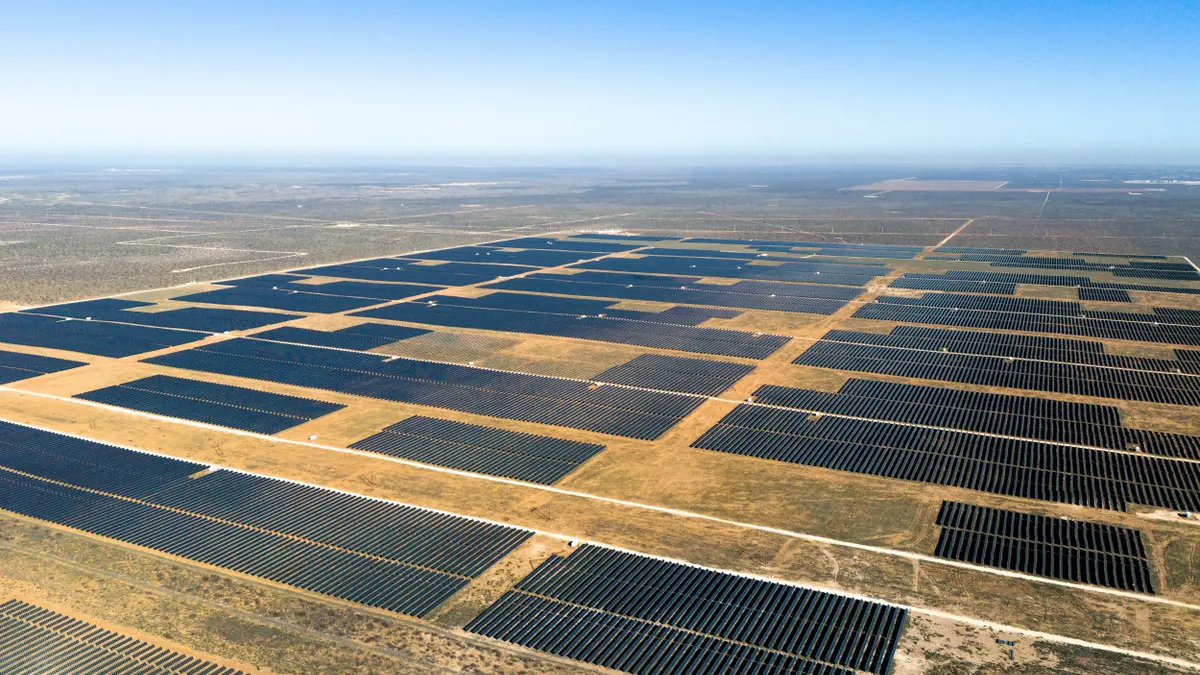State regulators in the Northeast are cautiously optimistic that the new administration and improved relations with their grid operator will finally place their states — and their region — on a path toward dramatically reducing emissions in the next decade. But much of that progress depends on whether structures within the New England ISO change beyond the reversal of controversial orders in the region, they say.
Almost every state in the ISO New England footprint has an ambitious mandate or goal for clean electricity in the coming decades, requiring large amounts of renewable energy to come onto the power system. But efforts by the grid operator to prevent price suppression in the region, as a result of increasing levels of subsidized resources, led to tensions between the regional operator and state officials in recent years — specifically, rules set under the Federal Energy Regulatory Commission in 2018 to reform its capacity auction by splitting it in two. Under the first auction, the minimum offer price rule (MOPR) would apply, effectively raising the bidding price of all state-subsidized resources. The second auction is an attempt to somewhat rectify this by allowing cleared resources to substitute themselves out for newer, state sponsored resources, and get paid for doing so.
Ultimately, this rule, approved in 2018 and known as Competitive Auctions with Sponsored Policy Resources (CASPR), heightened the conflict between states and their regulators, and for a time cemented the MOPR as an appropriate response to concerns over state-subsidized resources. States felt the rules would interfere with the laws binding them to bring on more clean energy, and regulators became increasingly frustrated when faced with regional policies they believed would not allow them to fulfill their statutory duties to implement those laws.
But now, under a new FERC and faced with a wave of political backlash — including some states in the also MOPRed PJM Interconnection threatening to exit the markets altogether, and a letter sent to the ISO in October from five Northeast states demanding changes to the market's design, planning process and governance — FERC and the grid operators are working to rectify those policies, and give states a more central voice in the discussion.
"The MOPR regimes and Eastern capacity markets have pretty much forced us to get to a situation where we're at battle, in many cases, with the states — and needlessly so, in my opinion," said FERC Chair Richard Glick, who consistently opposed the orders when he was a commissioner, during FERC's second technical conference in May on re-evaluating resource adequacy in the markets.
To quell state frustrations, regulators say conversations will have to move past the CASPR and MOPR.
'CASPR has been a complete failure'
Five of the six states in ISO-NE's footprint have either a law or goal in place that would bring their state toward majority-renewables fuel mixes or net-zero emissions by mid-century.
The CASPR and MOPR rules have impacted states in the region differently. For Maine, Connecticut and Massachusetts in particular, regulators say the rules impose additional costs onto the system and prevent state-sponsored resources from clearing the capacity market, ultimately hindering them from moving toward their clean energy goals and mandates.
"CASPR has been a complete failure."

Richard Glick
FERC Chair
CASPR was supposed to allow states to continue bringing on generation resources they prefer, while protecting generators necessary for system reliability. But by some accounts the policy has not worked out as it was intended — the Merrimack coal plant in New Hampshire, the largest in the region, cleared the capacity market for 2024 and 2025, which some critics say is a sign in itself the market isn't working as it should, because CASPR is supposed to incentivize retiring older, dirtier power plants.
In total, only 54 MW of resources cleared under the first CASPR auction, and no resources have cleared through the CASPR mechanism in the last two auctions.
"CASPR has been a complete failure," said Glick during the conference. "Extremely little ... new generation has been added as a result of that program, and all this has left us is a situation where we have higher prices, dirtier air, and states that are growing increasingly frustrated."
"The fact that we are here today, I think, confirms the fact that CASPR has, in practice over the past several auctions, proven to be a failure in aligning the wholesale market requirements with state laws," said Massachusetts Department of Public Utilities Chair Matthew Nelson during the conference.
"At the end of the day, it's no longer a theoretical problem," he added.
The New England ISO has said it plans to eliminate the MOPR, but some states are worried that the successor tariff will still prevent states from bringing their preferred resources online, given the grid operator's continued concerns that unsubsidized resources will face "greater uncertainty" regarding the future wholesale market capacity prices.
The ISO, in a memo shared with New England states, said it was committed to working with stakeholders to file a plan with FERC to eliminate the MOPR before the February 2023 forward capacity auction. But, the ISO added, it still has concerns about how eliminating the MOPR mechanism will impact non-sponsored resources' ability to compete in the market and gauge future prices.
"This uncertainty translates into greater financial risk and if left unaddressed, could have two unintended consequences," the ISO wrote — the failure of the market to clear new entry, and "inefficient retirement" of some resources.
"Accordingly, we believe it is important to work towards a dual objective of eliminating MOPR and maintaining competitive capacity market pricing," the memo reads.
"MOPRing state sponsored resources was never a solution."

Katie Dykes
Connecticut Department of Energy and Environment Commissioner
The ISO's independent market monitor is expected to deliver preliminary recommendations for how to avoid that financial risk by mid to late July, and the ISO plans to file with FERC by February 2022, according to a spokesperson for the grid operator.
Some regulators are afraid those recommendations will continue to hinder state policies, however.
"We do not want to see ISO replace the MOPR with some incremental fix that just does the equivalent of what the MOPR was doing," said Connecticut Department of Energy and Environment Commissioner Katie Dykes in an interview. "MOPRing state sponsored resources was never a solution," she said, and added that solutions should go beyond the MOPR, addressing previous market failures.
"The capacity market itself isn't working and hasn't been working for some time," she said.
Dykes and other commissioners argue part of the solution should be better governance and a shift in how the grid operator views the states.
'It's not that we're first among equals, it's that we are a different animal'
One of the biggest issues state regulators have felt when it comes to their relations with the grid operator is governance and states' ability to participate in the decision-making process.
States are an important part of the stakeholder process, according to the ISO, and the grid operator meets with and communicates with state representatives frequently.
"There are many ways for the New England states to participate in regional discussions, both inside and outside of the stakeholder process," said Matthew Kakley, a spokesperson for ISO-NE, in an email. "Our Board of Directors and senior management regularly meet with the states, and hear directly from them on different proposals. We distribute monthly memos to the states to highlight upcoming discussions, and have a corresponding monthly call to discuss issues chosen by the states."
But states argue they are not just stakeholders, and having a non-voting seat at the table isn't enough. States are sovereign entities with their own laws that the regulators are tasked with implementing, regulators point out. Those laws, including on decarbonization and renewable portfolio standards, are binding, and "it's not optional" for regulators to simply "walk away" from implementing those laws, said Vermont Department of Public Service Commissioner June Tierney in an interview.
"It's not that we're first among equals, it's that we are a different animal," she said.
"The way I think of it is you're at Baskin Robbins. And there are [31] flavors. We're not just another one of those flavors, we're the kid who's buying the ice cream cone."
That's a position states in the region can agree on, said Tierney, and having a voice at the technical conference was a good place to start, said Dykes.
"The fact that it's so hard to find the right word to describe the states role in the tariff development process is itself evidence that we need a better defined role in this process," said Dykes, "And I'm hopeful that this governance discussion will help us find that because the current status quo is not working."
Part of the solution should be to include states earlier in the stakeholder process, said Maine Public Utilities Commission Chair Philip Bartlett, though he and other states are worried the ISO will default to its normal process of identifying a problem, coming up with a solution, and then bringing it to states and other "very late in the game," making it hard for them to influence change.
"Often ISO listens to us, but doesn't necessarily try to incorporate changes to address the concerns that we raised," he said in an interview, adding Maine and other states will "continue working directly with ISO on some of the market changes, but also, I think, continue to press for some real governance reform to deal with some of the structural issues."






















